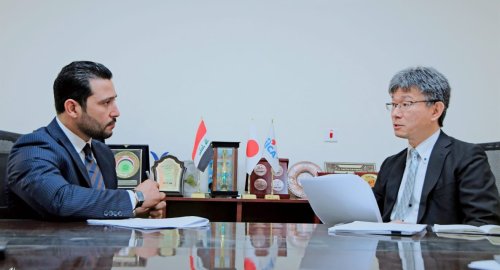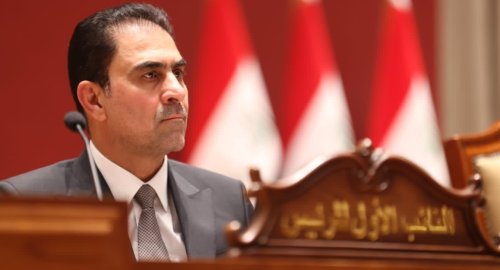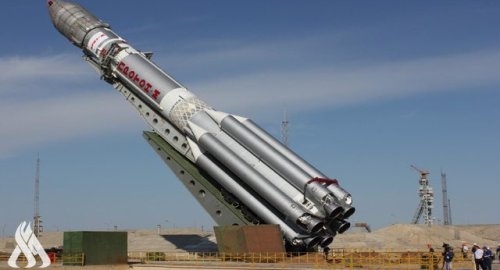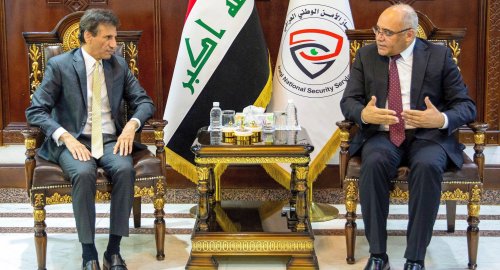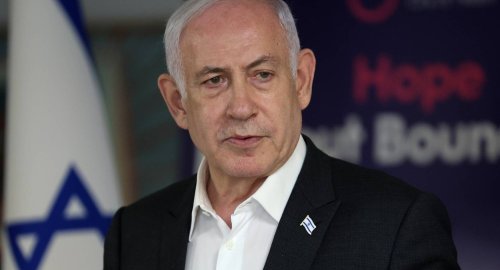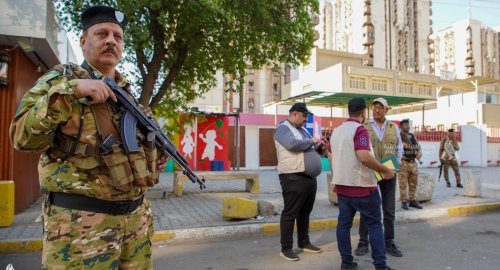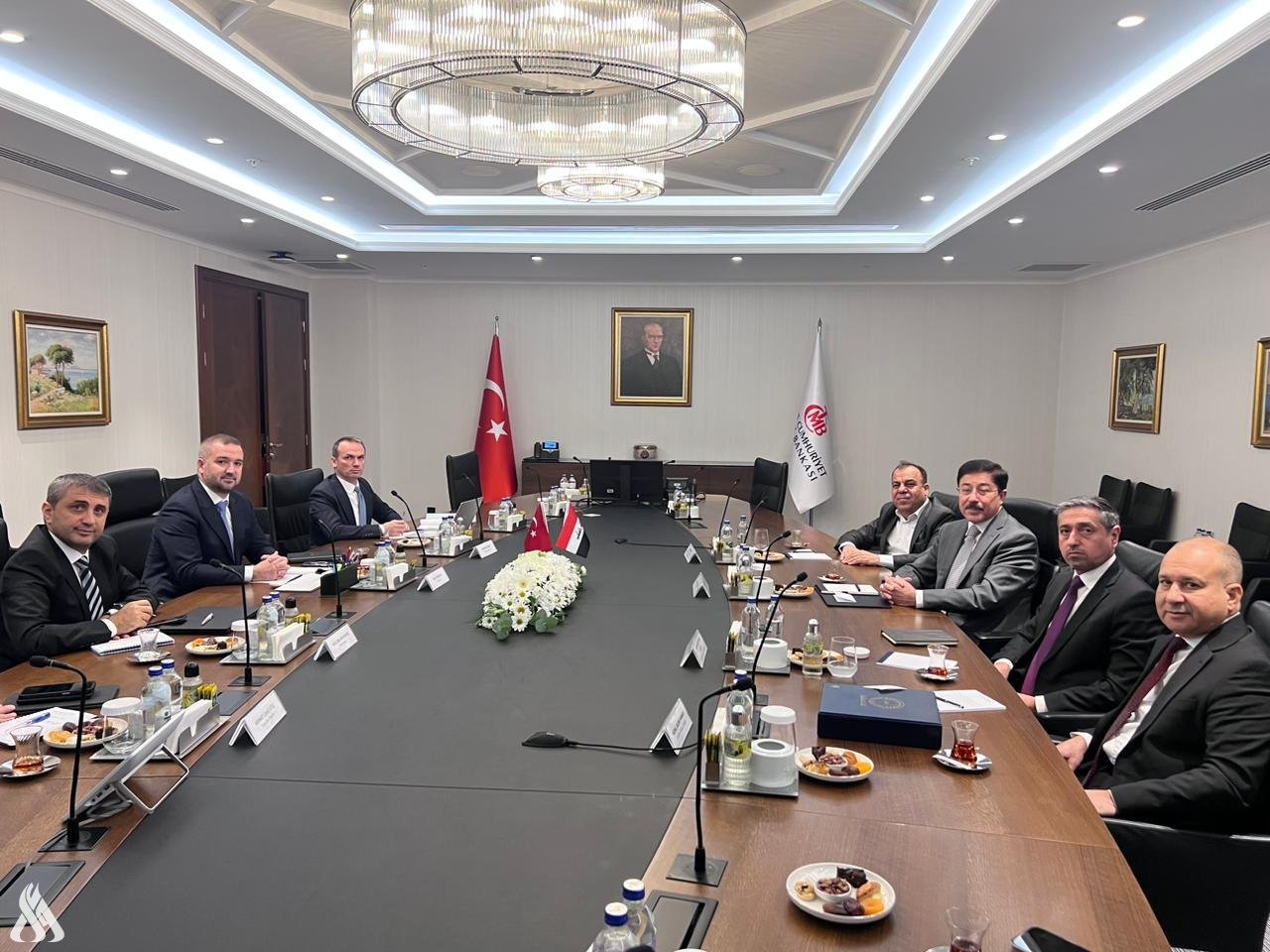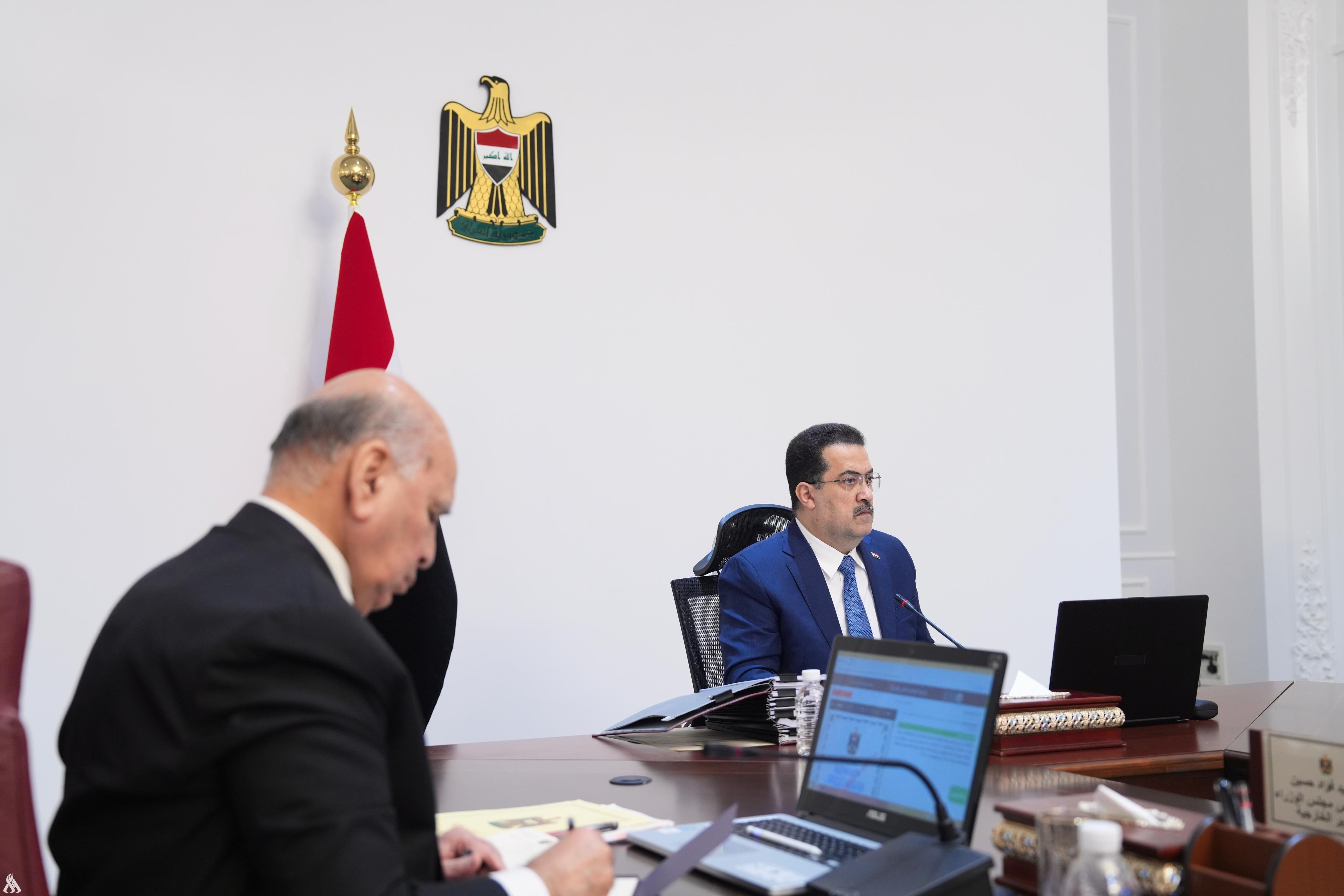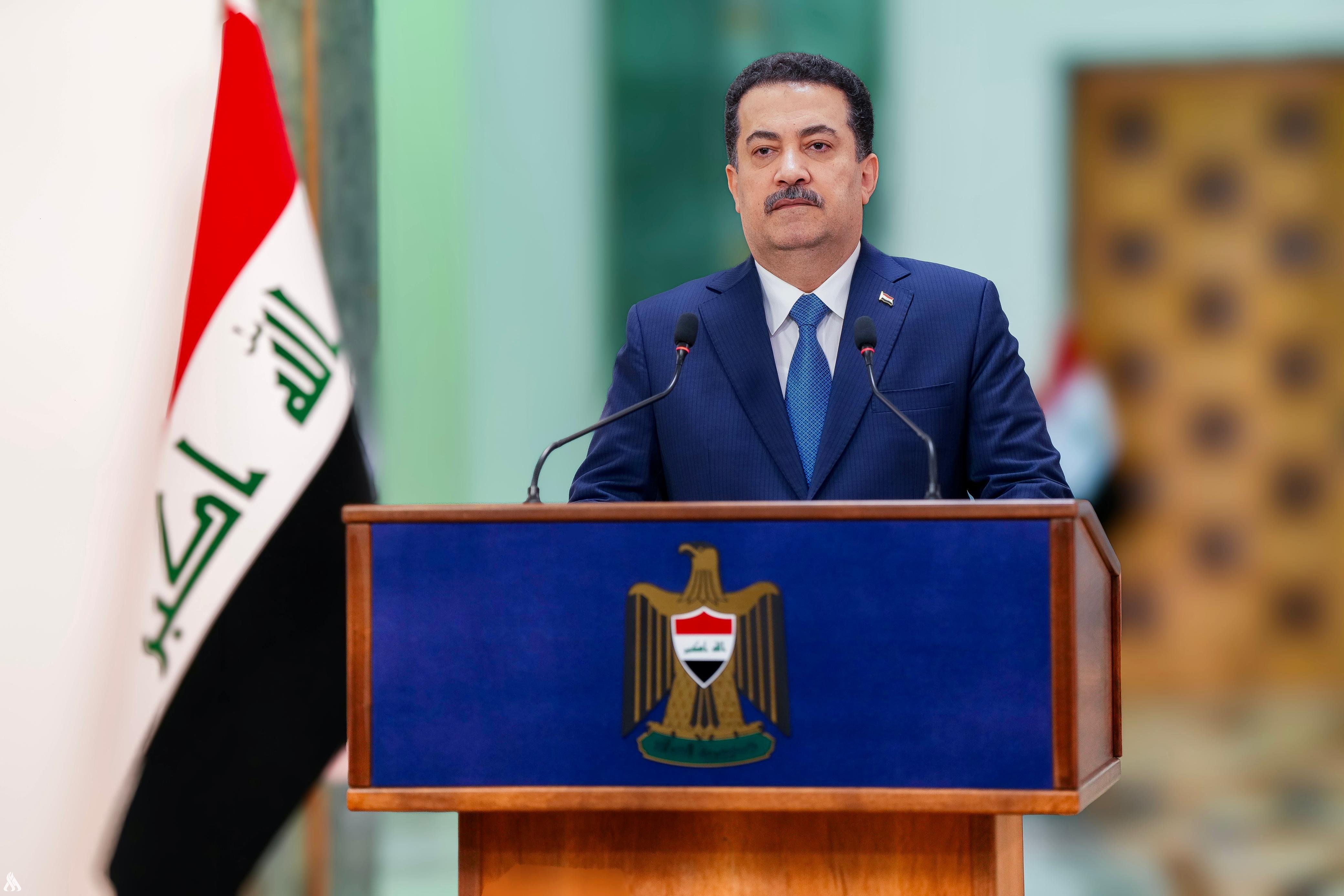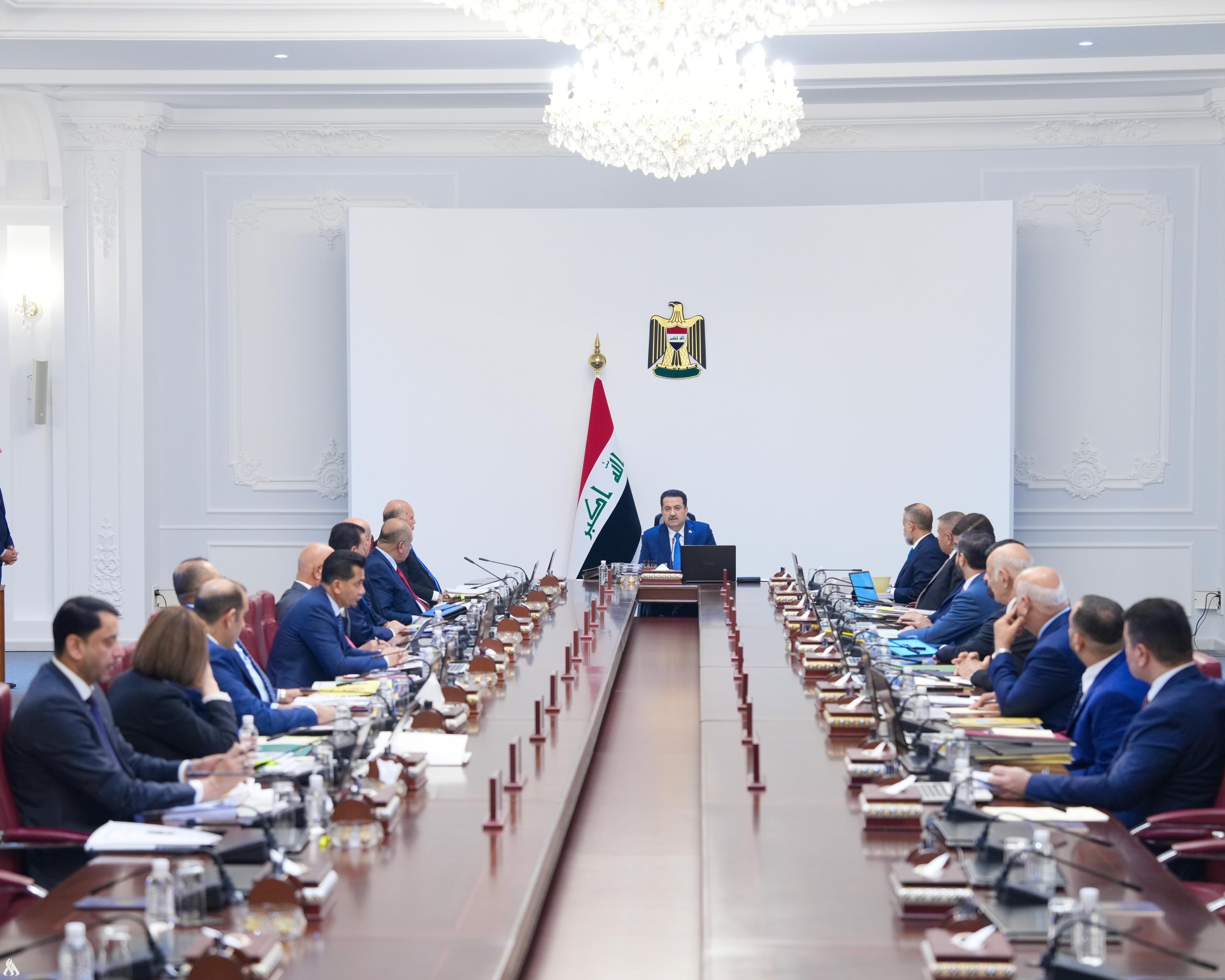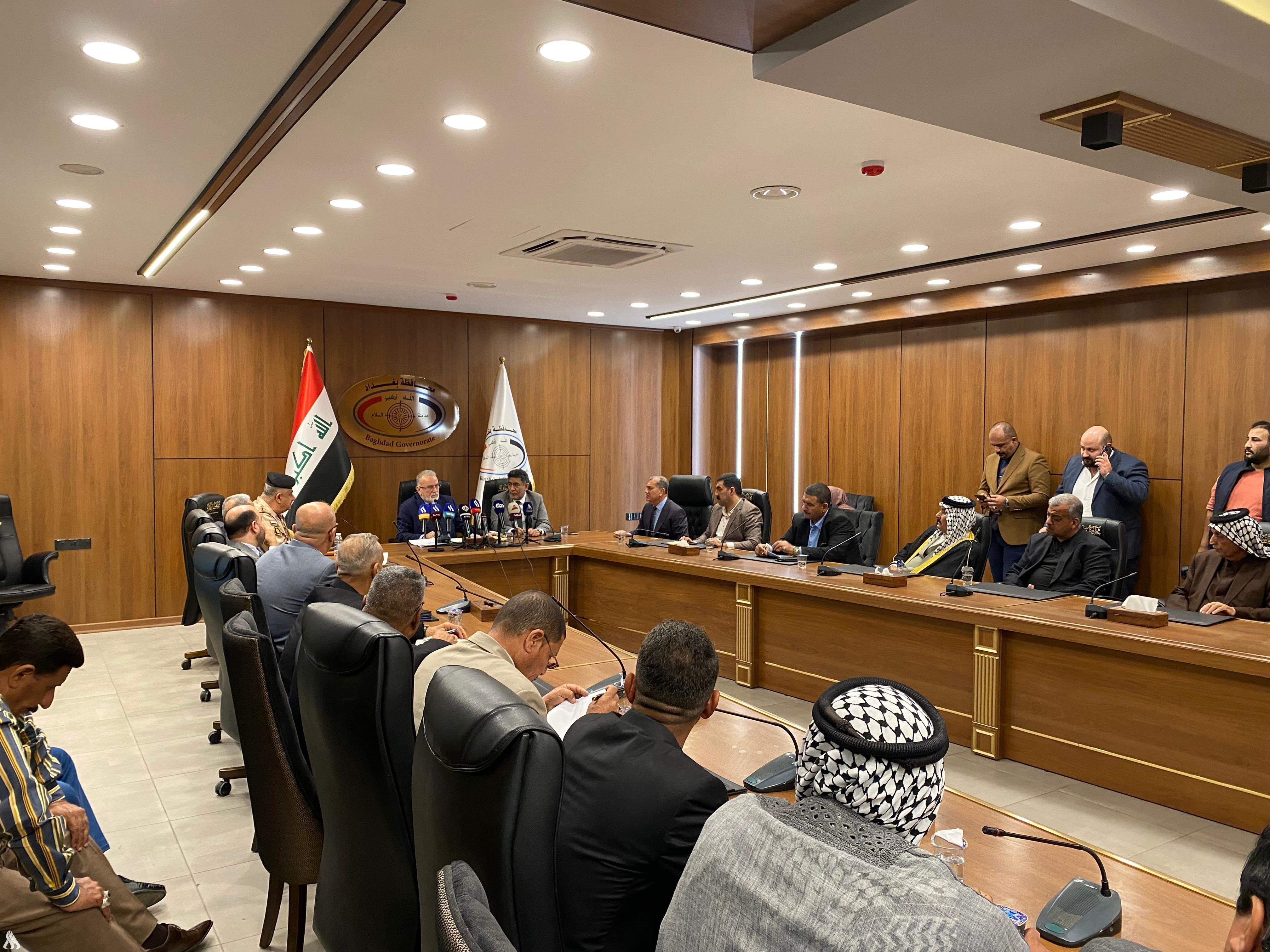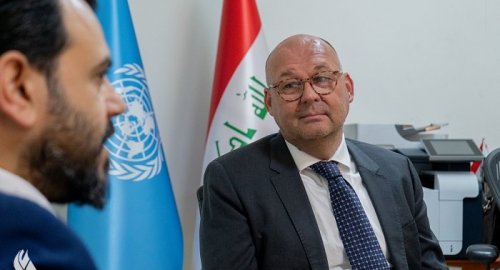
INA Discusses 13 Files with the United Nations Development Programme in Iraq

Investigations and reports
- 20-09-2024, 15:38
Baghdad – INA
The Resident Representative of the United Nations Development Programme (UNDP) in Iraq, Auke Lootsma, discussed today, Friday, revealing specific figures that detail UNDP's projects in the country. He highlighted the rehabilitation of 1,000 schools and over 150 healthcare facilities, and confirmed the launch of a program that has overseen 345 corruption cases and trained 700 judges and lawyers.
In an interview with the Iraqi News Agency (INA), Lootsma stated: “The Funding Facility for Stabilization (FFS), managed by UNDP in partnership with the Government of Iraq, has had a profound and transformative impact on the stabilization and recovery of Iraq’s liberated areas.
Established in 2015 in response to the devastating impact of ISIS occupation, the FFS has successfully implemented over 3,100 projects across key sectors, facilitating the return of nearly 5 million displaced Iraqis to their homes. By focusing on immediate stabilization needs, the FFS has been pivotal in restoring essential services, rebuilding infrastructure, and reinvigorating local economies in cities and towns devastated by conflict, such as Mosul, Ramadi, Fallujah, and Tikrit."
He elaborated that “One of the primary successes of the FFS is its ability to rapidly respond to community needs by rehabilitating critical infrastructure, including water and electricity networks, hospitals, schools, and housing. These efforts have restored access to vital services for millions of people, allowing families to return and communities to rebuild. For instance, the rehabilitation of over 1,000 schools has enabled tens of thousands of children to return to education, a critical step in restoring normalcy and investing in Iraq’s future. Similarly, the restoration of over 150 healthcare facilities, including hospitals and clinics, has significantly improved access to medical care, which was severely disrupted by the conflict.
He emphasized that “The FFS has also made significant strides in revitalizing local economies, creating job opportunities, and fostering social cohesion in liberated areas. By working closely with local authorities, the facility has provided grants to small businesses, rebuilt markets, and supported agricultural recovery efforts, helping communities regain their economic footing. These initiatives not only provide immediate employment opportunities but also contribute to the long-term resilience and sustainability of local economies. "
He further elaborated: " In addition to physical reconstruction, the FFS has played a crucial role in promoting social cohesion and rebuilding trust between communities and local authorities. Through its participatory approach, the FFS involves local stakeholders in the planning and implementation of projects, ensuring that the needs and priorities of communities are addressed. This has been vital in fostering reconciliation and preventing the re-emergence of conflict in areas previously controlled by ISIS."
He stated that " Overall, the FFS has been a cornerstone of Iraq’s stabilization efforts, demonstrating tangible success in restoring stability, rebuilding communities, and enabling millions of displaced Iraqis to return home. Its impact has laid the foundation for long-term development and peacebuilding in Iraq, positioning the country on a path toward sustainable recovery."
UNDP Initiatives
Regarding the initiatives implemented by the United Nations Development Programme (UNDP) in collaboration with the government, he noted that " In Iraq, UNDP has been instrumental in driving economic recovery, particularly in regions heavily impacted by conflict. Recognizing the critical need for sustainable livelihoods in post-conflict stabilization, UNDP has implemented a range of initiatives to boost local economies and create job opportunities. One of the key areas of focus has been vocational training, where thousands of Iraqi youth and women have been provided with skills tailored to local market needs in sectors such as construction, agriculture, and retail. These training programs have been essential in equipping individuals with the tools to secure employment and rebuild their lives after years of displacement and instability.
He continued: “Additionally, UNDP has actively supported small and medium enterprises (SMEs), which are vital to Iraq's economic recovery. Through grants, technical assistance, and business mentorship, initiatives like the Iraq Enterprise Development Fund (IEDF) have helped over 1,000 SMEs to either start or scale their businesses, contributing to job creation and economic diversification in regions such as Anbar, Nineveh, and Salahuddin. These projects not only provide financial stability but also foster entrepreneurship, particularly among women and young people, encouraging innovation and local enterprise development.
He affirmed that “Moreover, UNDP's focus on economic empowerment has contributed to the reintegration of internally displaced persons (IDPs) and returnees, providing them with the resources to build sustainable livelihoods. By promoting local businesses and entrepreneurship, UNDP’s interventions are laying the foundation for a more resilient and diversified economy in Iraq, helping to break the cycle of poverty and reduce dependency on humanitarian aid.."
Governance and the Rule of Law
He elucidated that "the United Nations Development Programme (UNDP) in Iraq occupies a central role in facilitating security sector reform and bolstering the rule of law, integral to its broader mission of fostering stability and peace within the country. This is achieved through strategic partnerships with the Government of Iraq, international donors, and civil society."
He added that "UNDP's initiatives are primarily directed toward reinforcing governance, transparency, and accountability within Iraqi security and judicial institutions."
He highlighted that "the EU-supported anti-corruption and arbitration initiative serves as a cornerstone of these efforts, having successfully trained over 1,300 participants, including government officials, civil society representatives, and legal practitioners."
He emphasized that "this initiative aspires to strengthen Iraq's legal and institutional frameworks to combat corruption effectively, which has historically posed a formidable obstacle to development and eroded public trust."
He further remarked: "UNDP is also actively engaged in judicial reforms designed to enhance access to justice and to ensure a more efficient and transparent legal system. This is accomplished through the fortification of oversight bodies, the provision of capacity-building for law enforcement agencies, and the promotion of community policing models."
He noted that "UNDP is dedicated to cultivating a security apparatus that is responsive to human rights and reflective of the diverse needs of Iraqi communities. These initiatives are pivotal in nurturing trust between citizens and the state, ensuring that security and justice are delivered equitably and transparently, in alignment with international human rights standards."
Environment, Energy, and Climate Change
He pointed out that "Iraq, as a country susceptible to natural disasters, has become increasingly vulnerable due to severe environmental degradation, neglect, weak legal and regulatory frameworks for environmental management, and inadequate institutional arrangements and capacities."
He elaborated that "Iraq faces numerous challenges stemming from climate change, including rising temperatures, decreasing rainfall, increasing water scarcity and salinity, and a higher incidence of dust storms and related catastrophic shocks. These factors create barriers to development in the post-conflict context, hindering efforts to reduce poverty, enhance livelihoods, and mitigate conflicts over natural resources."
He stated that "the United Nations Development Programme (UNDP) aims to contribute to environmental rehabilitation and development in Iraq by addressing the root causes and risks associated with environmental degradation, climate change, and catastrophic shocks through capacity building and technical assistance."
He noted that "the support is designed for relevant ministries and departments of both the national and local governments, as well as regional authorities, empowering them to meet their legal, political, and regulatory obligations to promote environmental sustainability and climate resilience in Iraq."
He continued that “Programmes and Initiatives (in collaboration with the Government of Iraq) are:
Mosul Dam Emergency Preparedness Plan
Catalysing the Use of Solar Photovoltaic Energy
Green Climate Fund Readiness Programme in Iraq
Promoting Carbon Reduction through Energy Efficiency Techniques
Support to Iraq's Nationally Determined Contribution
Coordination with Government Institutions
Lootsma noted that "the United Nations Development Programme (UNDP) in Iraq collaborates closely with various Iraqi government institutions to implement its programs. UNDP’s work in Iraq is anchored in a strong partnership with the Government of Iraq, as it works closely with key ministries to address the country’s developmental challenges and promote sustainable growth by aligning its initiatives with national priorities."
He affirmed that "UNDP collaborates closely with the General Secretariat of the Council of Ministers, the Prime Minister’s Office, the National Security Adviser, and numerous government entities, including ministries such as Planning, Environment, Electricity, Justice, and Interior, ensuring that its projects not only address immediate needs but also contribute to long-term development goals."
He continued: "For instance, through its collaboration with the Ministry of Planning, UNDP is working to integrate the Sustainable Development Goals (SDGs) into national policies and development plans, ensuring that Iraq's recovery is both inclusive and sustainable. In the area of climate action and environmental sustainability, UNDP partners with the Ministry of Environment to implement initiatives that address climate resilience, water resource management, and greenhouse gas emissions reduction, which are critical for Iraq’s adaptation to climate change. Similarly, UNDP's work with the Ministry of Electricity focuses on rebuilding and modernizing Iraq's energy infrastructure while enhancing energy efficiency and exploring renewable energy options. Regarding the rule of law and security sector reform, UNDP collaborates with the Ministry of Justice and the Ministry of Interior to improve the judicial system, strengthen anti-corruption frameworks, and promote community policing models. These partnerships help ensure that UNDP's work is grounded in Iraqi national frameworks and directly contributes to strengthening institutions, policy development, and the sustainable recovery of the country."
Alignment with the Government
He stated that " UNDP is strategically aligned with the priorities of the government under the leadership of the Prime Minister Muhammad Shia' al-Sudani. The main areas of alignment reflect UNDP's complete harmony with the Iraqi Prime Minister's priorities, particularly in the fields of anti-corruption, economic diversification, and sustainable development. To support the Prime Minister's commitment to combating corruption and enhancing governance, UNDP's anti-corruption and arbitration initiatives have been crucial in strengthening Iraq's legal and institutional frameworks."
He continued: "UNDP has provided technical support for the review and reform of key anti-corruption laws in accordance with the United Nations Convention against Corruption and has assisted in drafting a law on access to information. Once enacted, this law will empower citizens to hold public authorities’ accountable, thereby enhancing transparency in public expenditure. Additionally, UNDP has built the capacities of over 1,000 government officials through specialized workshops and facilitated policy dialogues to support the effective implementation of Iraq's national anti-corruption and integrity strategy."
He added that "UNDP has also continued to enhance the judicial system's capacity to combat corruption by launching a court monitoring program, which has overseen more than 345 major corruption cases and provided intensive training for over 700 judges, lawyers, and investigators." He emphasized that "this initiative bolsters the integrity of Iraq's judicial institutions, ensuring that corruption cases are addressed efficiently and transparently."
He affirmed that "UNDP's support in resolving commercial disputes, through the drafting of arbitration laws and enhancing awareness of international standards such as the New York Convention, aligns with the Prime Minister's focus on creating a conducive business environment that attracts foreign investment and drives economic growth."
He noted that "UNDP is also collaborating with the government to diversify the Iraqi economy beyond oil by promoting investment in human capital, fostering job creation, and supporting sustainable development initiatives. This includes capacity building for small and medium-sized enterprises and supporting entrepreneurial projects that contribute to economic diversification. These efforts not only create jobs but also ensure long-term economic resilience."
He highlighted that "UNDP's programs are firmly rooted in achieving the Sustainable Development Goals, in alignment with Iraq's national development strategies to ensure sustainable growth. From climate resilience initiatives to promoting inclusive governance, UNDP projects are designed to address Iraq's unique challenges and support the government’s vision for a stable, prosperous, and transparent future. Through this comprehensive approach, UNDP remains a reliable partner in advancing the Prime Minister's priorities for Iraq's development."
Participation in Youth Programs
He explained that "the United Nations Development Programme (UNDP) actively supports government initiatives focused on youth through various programs, including employment and entrepreneurship. UNDP has launched numerous projects to enhance youth employment, encompassing vocational training, entrepreneurial support, and job creation in sectors such as agriculture and technology."
He continued: "Moreover, youth empowerment initiatives under UNDP aim to strengthen leadership skills and civil engagement among Iraqi youth, ensuring their active participation in the country’s development."
Collaboration in Artificial Intelligence Programs
He noted that "while specific projects related to artificial intelligence have not been prominently highlighted, UNDP is involved in broader efforts toward digital transformation in Iraq."
He emphasized that "this includes support for e-governance, eliminating digital illiteracy, and integrating technology into public services, which are essential for the future implementation of artificial intelligence."
Support for Returning Displaced Persons and Stabilizing Liberated Cities
He stated that "the efforts of the United Nations Development Programme (UNDP) in stabilizing Iraq have been crucial in facilitating the return of displaced persons and rebuilding war-torn cities."
He elaborated that "over the past nine years, up until August 1, 2024, the Stabilization Programme has successfully completed 3,833 projects across its four windows, with a total value reaching $1.3 billion, achieving significant progress in promoting sustainable development and improving the lives of the Iraqi people. By focusing on essential sectors such as education, electricity, water, and healthcare, the Stabilization Programme has implemented infrastructure projects that enhanced access to vital services and improved living conditions in targeted areas."
He pointed out that "the rehabilitation of public infrastructure, including roads, bridges, and buildings, has helped provide essential services and contributed to the comprehensive development of communities. The program’s efforts have also supported farmers and promoted sustainable agricultural practices, empowering individuals—especially women—by increasing agricultural production, creating economic opportunities, and fostering gender equality. Furthermore, the program’s focus on capacity building and institutional support has strengthened local governments' ability to provide essential services and maintain security, contributing to long-term stabilization efforts."
He continued, "Overall, the Stabilization Programme has played a vital role in enhancing stability, socio-economic growth, and improving the quality of life for the Iraqi people, paving the way for sustainable development in the country."
He added that "the Stabilization Programme has enabled UNDP to strengthen its position as a reliable partner for the Government of Iraq and enhance strategic relationships across vital sectors at both national and local levels."
He detailed the projects implemented by UNDP up to August 1, 2024, noting that in the education sector, 1,263 projects were completed with a value of $164.8 million, benefiting 1.2 million individuals. In the electricity sector, 362 projects valued at $220.9 million benefited 6.5 million individuals. In healthcare, 591 projects were completed with a value of $183.7 million, benefiting 4.8 million individuals.
He added, "In the housing sector, there were 142 projects valued at $87 million, benefiting 290,000 individuals. In the livelihoods sector, 262 projects were completed with a value of $99.9 million, benefiting 84,000 individuals. In municipal services, 669 projects valued at $115.7 million benefited 6.3 million individuals."
He noted that "in the roads and bridges sector, there were 80 projects valued at $54 million, benefiting 3.3 million individuals. In the sanitation sector, 111 projects were completed with a value of $20.9 million, benefiting 1.8 million individuals."
He further stated, "In the community cohesion sector, 40 projects were completed with a value of $7.6 million, benefiting 96,800 individuals. In the water sector, there were 313 projects valued at $124 million, benefiting 5.5 million individuals."
Social Cohesion Programme
He affirmed that the " Social Cohesion Programme has achieved significant success in enhancing stability and resilience within conflict-affected communities, with over 90,000 individuals participating in dialogue and reconciliation activities."
He noted that "the program has strengthened local capacities to manage tensions and rebuild trust."
He added that "the critical support provided to vulnerable populations, including women, youth, and minorities, has been instrumental in promoting inclusive development."
He also emphasized that "this comprehensive approach has contributed to reducing social divisions and improving community relations, thereby laying the groundwork for sustainable peace in Iraq, where over 5,000 individuals have been reintegrated into their communities with the support of the United Nations Development Programme (UNDP)."
Infrastructure for Peace
He pointed out that "the UNDP has supported the establishment of local peace committees in conflict-prone areas, facilitating dialogue and reconciliation. In 2024, 24 local peace committees were supported through capacity-building initiatives and grants for peace projects, including efforts to prevent violent extremism."
He asserted that "the UNDP has been effective in implementing a strategy to prevent violent extremism in Iraq by supporting the development of legal frameworks and local action plans to combat sectarian violence, as well as training over 60 civil society organizations to execute initiatives aimed at preventing violent extremism."
He continued, "In 2023, 27 community initiatives to prevent violent extremism were implemented, and 21 additional initiatives are currently underway across seven governorates."
Regarding "the reintegration of returnees," he indicated that the program focuses on reintegrating internally displaced persons (IDPs), particularly those believed to have affiliations with the ISIS organization. He noted that the community reconciliation and reintegration program for Iraqis returning from the Al-Hol camp in Syria is one of the leading initiatives, focusing on sustainable reintegration by providing psychological, social, economic, and housing support, while fostering community acceptance.
He added that "the UNDP emphasizes the roles of women and youth in peacebuilding by forming peace groups, training them in leadership, and supporting them in executing community initiatives." By 2023, over 100 community initiatives had been completed, with an additional 40 initiatives in progress.
Support for Clean Energy Initiatives
He stated that "the UNDP supports Iraq's transition to clean energy through various initiatives, including renewable energy projects, which have been implemented in remote areas and public facilities, reducing reliance on fossil fuels and promoting sustainable energy practices."
He highlighted that "sustainable resource management aims to improve water use in agriculture and introduce environmentally friendly technologies in rural communities."
UNDP Iraq's Security Sector Reform (SSR) programme
He noted that "the Security Sector Reform (SSR) has focused on enhancing transformative changes within the Iraqi security landscape, shifting from military-led security to a model centered on the citizen."
He emphasized that "the initiative has closely collaborated with the Ministry of Interior to establish six model police stations, two of which serve as learning and development hubs, thereby enhancing police accountability and responsiveness."
He continued, "The program has trained over 6,000 Iraqi police officers and has also launched case management systems to improve police operational efficiency."
He mentioned that "the Security Sector Reform Strategy for the period 2024-2032, endorsed by the High Commission for Security Sector Reform, aims to strengthen local security structures and address climate-related risks within the security sector."
He added that "the program also supports financial investigations and anti-money laundering efforts, facilitating collaboration among 11 national institutions, and has developed a financial investigations guide while training over 2,000 legal and financial professionals."
He affirmed that "security sector reform enhances women's participation in security through the Women, Peace, and Security Initiative, empowering women in police roles and promoting gender-sensitive reforms. The UNDP continues to contribute to sustainable peace and development in Iraq through strong partnerships across national and international institutions."
Future Programs
: Future Programs: Looking ahead, UNDP plans to expand its focus on
Climate Resilience: Enhancing Iraq’s capacity to adapt to climate change through sustainable agriculture, water management, and clean energy projects.
Digital Transformation: Supporting Iraq’s digital economy by promoting e-governance and expanding digital infrastructure.
Youth and Women Empowerment: Continuing to empower women and youth through tailored programs that address their unique challenges and promote their active participation in Iraq’s development (UNDP, UNDP).
Russia launches an intercontinental ballistic missile at Ukraine
- International
- 04:00
NSS and UN Representative Discuss Common Issues
- Security
- 03:58
ICC issues arrest warrants for Netanyahu and Galant
- International
- 03:57
CBI Urges Turkey to Open Accounts for Iraqi Banks
- Economy
- 24/11/14
The Cabinet holds the 47th session, decisions included
- politics
- 24/11/19

